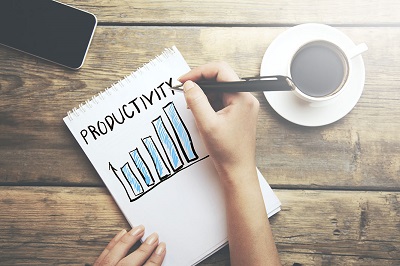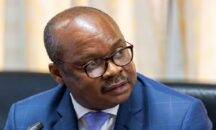Prioritise mental healthcare to boost productivity

The human resource is an important factor of production and the fulcrum around which all economic activities revolve.
Apart from capital, land and technology, the labour force is an important factor of production.
The world economy, Ghana not exception, relies on the human capital, in spite of the advent of computers, robots and other machinery which can perform relatively better other tasks humans can do, to propel the economy.
Thus, it is necessary, for governments to put measures in place to ensure the mental wellbeing of all the populace.
Mental Health is one area which attention must be paid to in the healthcare delivery system of the country because without good mental health one cannot give out his or her best or cannot be in a good frame of mind to go to work.
Sadly, mental healthcare is one of the most neglected sectors in the healthcare system in the country. There are only few Psychiatric Hospitals in the country and mostly dotted in the capital cities. Apart from the Accra Psychiatric Hospital and the Pantang Hospital, there are no other major psychiatric hospital to care for the mental health of the populace. If a person needs psychiatric health attention at the local level, the person has to be transferred to Accra.
Mostly, mental health is associated with people roaming the streets dirty and sometimes, naked.
Is it not a scar on the conscience of the country that people with mental problems and often described as ‘mad’ people are allowed to roam the streets without any facility to shelter such individuals?
The media is rife with stories in which people with mental challenges have run amok, injured and hacked some persons to death.
Such happenings could have been prevented if a Centre had been created to host the mentally challenged and prevent them from roaming the street and becoming a threat to the society.
According to health experts, every human is predisposed to mental health conditions which there are studies to confirm such assertion.
Health experts say that being too much happy, withdrawing from the thing one habitually does, inability to sleep, constitute forms of mental problems.
According to the Mental Health Authority one in five persons in the country has a form of a psychological problem and 10 per cent of the population that is 3.08 million Ghanaians are predisposed to mental health problems.
According to Mindfreedom Ghana, a Non-governmental organisation into mental health, the COVID-19 pandemic has increased inequalities in human development, including unleashing unpleasant situations for mental health by causing more incidence of mental disorders as well as emotional challenges and disrupting already inadequate mental health services in many parts of the world, not excluding Ghana.
The World Health Organisation indicates that the COVID-19 is posing serious mental challenges to people and the negative repercussion of COVID-19 includes illness and death of healthcare workers and the general population.
On October 10, 2021, Ghana joined the World Health Organisation (WHO) Ghana Office to observe the Mental Health Day under the theme “Mental Health in an Unequal World.”
The day is marked globally every year to drum home the need for governments to pay more and invest more in mental healthcare.
In Ghana with support from the Ghana Somubi Dwumadie, a four-year disability in Ghana, with a specific focus on mental health, the Mental Health Authority as part of the World Mental Day, observed a week-long programme to promote mental health.
The Ghana Somubi Dwumadie is being funded with UK Aid from the UK Government and is run by an Options-led consortium, which consists Basic Needs-Ghana, King’s College London, Sight Savers International and Tropical Health.
In a joint press statement issued by Mental Health Authority, WHO Ghana Office and Ghana Somubi Dwumadie, said “the lack of sufficient financing is acknowledged to be a critical gap in mental health service provision in Ghana.”
“Today we are calling also for investment in mental health to support and improve access to psychotropic medicines, non-drugs therapies, and strengthened governance and accountability measures, such as the establishment of the Mental Health Review Tribunal. We are calling also for the inclusion of mental health in the National Health Insurance Scheme benefits package, and the use of the United Nations-One Health Tool to accurately cost key mental health interventions and address resource adequacy for mental health service and system scale-up,” the group said.
They call on the Ministry of the Local Government to mandate and enforce the existing policy where the Municipal and District Assemblies are required to make budgetary allocations (ring-fenced) for mental health.
According to the Mental Health Authority, WHO and Somubi Dwomadie, investing more in mental health, will have a transformative effect for Ghana in boosting economic growth and improving the health and wellbeing of its citizens.
They contend that investing in mental health will support Ghana’s economic growth, strengthen poverty reduction efforts, support Ghana’s efforts to achieve universal health coverage and improve population health and reduce the burden on the health system.
Deputy Chief Executive Officer of the Mental Health Authority, Dr Caroline Amissah, in an interview, during the media launch of the Mental Health Week, stressed the need for the government to increase financial allocation to health.
“If government can commit three to four dollars per person, currently it would be 520 million dollars which is less than one per cent less of the budget government spends on health,” she said.
Dr Amissah said “Good health means wealth, if you are healthy you will make money so if you are not well then you are not productive and as such cannot make money for the system.”
The Deputy CEO said the Authority had planned to do a survey to find out if Ghanaians were happy with the mental health situation in the country.
While entreating government to invest more in mental health, it is also crucial to commend the Ministry of Health and the Mental Health Authority for developing the Mental Health Policy (2019-2030), which seeks to provide a framework for supporting the promotion of good mental health for the population.
The enactment of the Mental Health Law in 2012 and the establishment of the Mental Health Authority to oversee good mental health is commendable.
Also, the decision by the government to establish three psychiatric hospitals across the country under the Agenda 111, to take care of mental health is worthy of praise.
To sum up, good mental health is a right and efforts must be made to improve mental health to boost productivity of the country. The country cannot develop if a section of the population has mental problems and cannot work.
Writer’s email address/mobile phone number:
gbetomenyo81@gmail.com
(0246943864)
By Kingsley Asare














